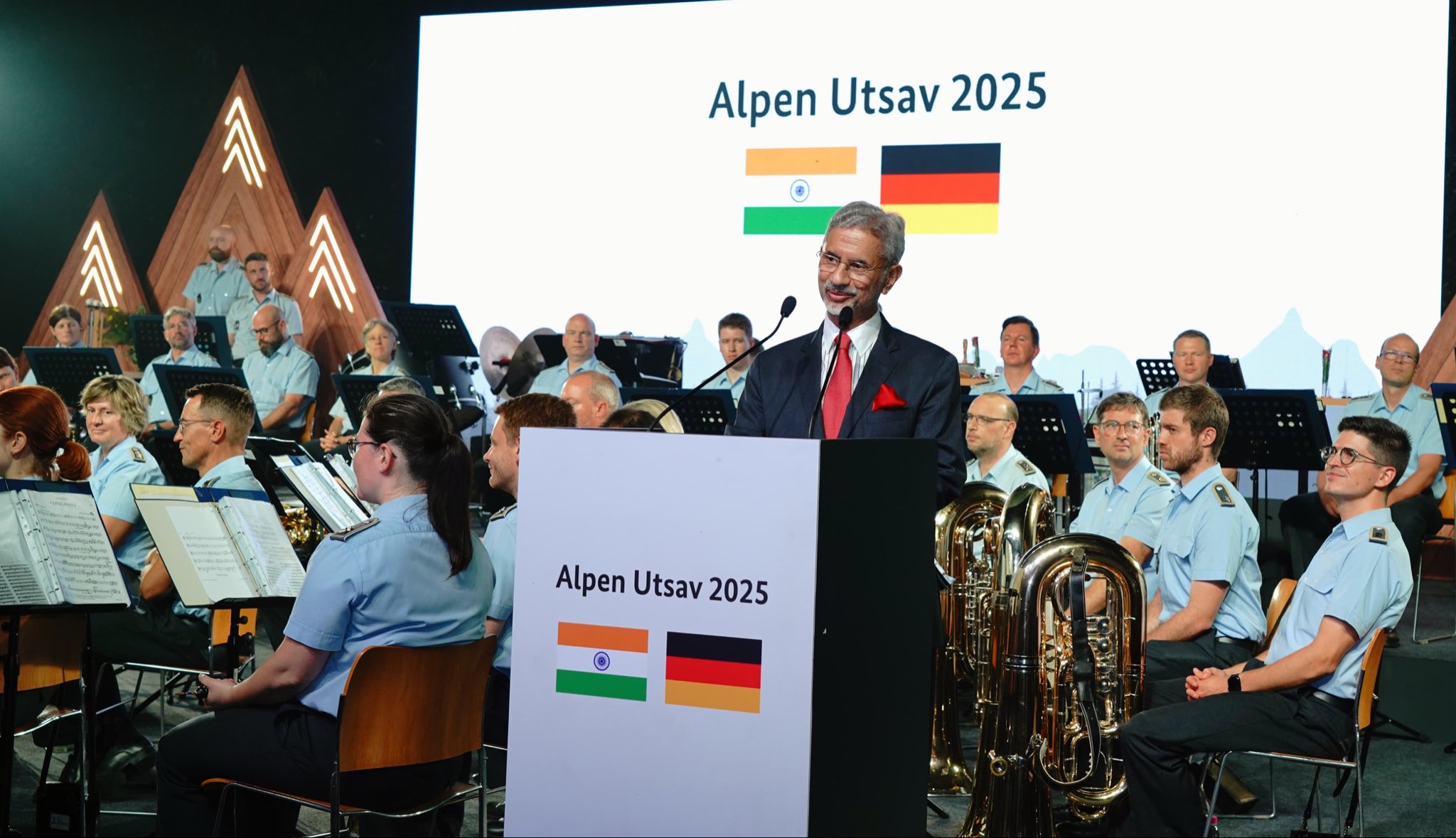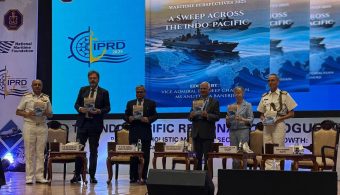Photos Credit: x.com/DrSJaishankar
At the German Unity Day reception hosted by the German Embassy on 30th October, External Affairs Minister Dr. S. Jaishankar called India and Germany “key partners in ensuring stability amid a turbulent global order,” emphasising their shared responsibility to advance peace, prosperity, and progress. Addressing diplomats, business leaders, and members of the Indo-German community, Minister Jaishankar said both nations “have an important responsibility for stabilising the global order,” underscoring that stronger coordination between Berlin and New Delhi would help shape a more resilient and equitable world.
Shared Responsibility Amid Global Volatility
Dr. Jaishankar cautioned that the world is witnessing “strategic unpredictability and economic volatility,” which require a coordinated response from like-minded democracies. “Our two nations have an important responsibility for stabilising the global order and promoting peace, progress and prosperity,” he said, adding that such objectives can be realised “by expanding our convergences and taking forward a mutually beneficial agenda.”
Echoing the sentiment, German Ambassador Dr. Philipp Ackermann said the friendship between India and Germany is “rooted in shared democratic values and mutual respect.” He lauded India’s rapid economic growth and global outreach, noting that “Germany sees India not only as a key partner in Asia but also as an indispensable pillar for a stable international order.” The Ambassador highlighted the need to maintain open dialogue on global challenges such as climate change, conflict prevention, and supply-chain resilience, stressing that “our cooperation goes far beyond trade—it touches the very core of how we envision the world of tomorrow.”
Germany: A Key Partner in India–EU Trade Negotiations
Underscoring the deepening economic partnership, Dr. Jaishankar described Germany as “central to India’s ongoing trade negotiations with the European Union.” He reaffirmed India’s commitment to a balanced and forward-looking free-trade agreement that serves the interests of both sides. The minister pointed to rising investor confidence among German companies operating in India, emphasising that bilateral trade and investments are “steadily growing.”
Germany remains India’s largest trading partner within the European Union, and the minister said its industrial expertise aligns well with India’s manufacturing and green-transition ambitions. He also highlighted the growing number of Indian professionals and students in Germany as evidence of expanding people-to-people ties.
Strengthening Defence and Security Cooperation
On the strategic front, Dr. Jaishankar said that defence collaboration between India and Germany has “picked up visibly,” reflecting a stronger convergence of interests in maritime and industrial domains. This includes German participation in India’s Project 75(I) submarine programme, joint naval interactions, and renewed discussions on advanced defence manufacturing.
He also thanked Berlin for its unequivocal support following the terrorist attack in Pahalgam earlier this year, affirming that India and Germany maintain a “zero-tolerance” approach to terrorism. These steps, he said, have transformed the partnership into one that “goes beyond political trust to real operational cooperation.”
Ambassador Ackermann reinforced this trajectory, noting that the two countries are now exploring collaboration in cyber-security and dual-use technologies. “Germany values India’s growing leadership in defence innovation and regional security,” he said, adding that “our dialogue today covers not just arms or strategy, but the broader question of how democracies safeguard peace in an unpredictable world.”
Green Growth, Innovation and Sustainable Development
Dr. Jaishankar highlighted the success of the India–Germany Green and Sustainable Development Partnership (GSDP), under which Germany has committed €10 billion by 2030 to support India’s climate and energy transition. The partnership focuses on renewable energy, hydrogen diplomacy, e-mobility, and circular economy projects.
He noted that technological collaboration between Indian start-ups and German research institutions—particularly in semiconductors, green hydrogen, and AI-driven industrial automation—is setting new standards for innovation. Ambassador Ackermann said that “climate cooperation is at the heart of our modern partnership,” describing the GSDP as “a model of how developed and emerging economies can work together to meet global challenges.”
Looking Ahead: Deepening a 25-Year Strategic Partnership
Reflecting on 25 years of the India–Germany Strategic Partnership, Minister Jaishankar said that the relationship has matured from traditional trade and cultural exchange to comprehensive global collaboration. He emphasised that both nations are aligned on reforming multilateral institutions, securing supply chains, and advancing digital and industrial innovation.
“India and Germany are like-minded democracies,” Dr. Jaishankar concluded, “and their partnership stands for balance, resilience, and shared responsibility at a time when the world needs both.”
The German Unity Day celebration, attended by senior diplomats, ministers, business leaders, and cultural figures, reflected not only the friendship between the two nations but also the strategic weight the partnership now carries in shaping the global order.



